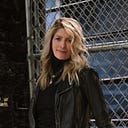Monday Minute #12
The “Eustress” Zone: Cultivating Change Through Discomfort
I had never heard the term “eustress” until I read The Mindful Athlete, a book by sports psychology expert, George Mumford. Mumford distinguishes among stress, distress (which many of us are feeling right now), and eustress. “Persistent, unresolved, and cumulative” stress becomes distress. Mumford defines eustress as “that space between where we are and where we want to go — or that place between our comfort zones and the fringe of our discomfort zones.”
He encourages athletes to understand the great potential of the eustress zone — the episodes in training when individuals are purposefully uncomfortable, pushing themselves mentally and physically, not to a point of distress (which can cause loss of hope), but instead into a phase of transformation. Through the exertion of lifting weights, performing difficult drills, and rising up to meet challenges that at first may seem daunting, athletes “set down new neural pathways.” By experiencing discomfort during arduous training, and recognizing it as an opportunity to strengthen and improve, athletes grow.
Right now, we are (understandably) feeling distress — as individuals and a community. Our anguish, anger, and fear twist and turn, igniting pain. We are caught in a web of conflicting yearnings: stay healthy; emerge from COVID-19 lockdown; amplify our voices in outrage; convince others; cry; yell; fight; numb ourselves.
Instead of vaulting from stress right into distress — which can lock us into a state of overwhelm, hopelessness, or pessimism — what if we experiment with eustress? When we wake up in the morning, rather than barreling straight into a cyclone of anxiety, frustration, or agitation — out of habit — let’s pause.
Like athletes, let’s notice the moment we feel our hearts beat faster, our pulses quicken, our muscles strain, our bones ache, and our chests rise and fall as we crave oxygen. Instead of letting our disquiet catapult us into distress, let’s hold on. Let’s stay in those moments, consciously engaging with the discomfort, now with enhanced awareness and clarity of its powerful purpose. Let’s interpret our discomfort as a signal of hope, optimism, and trust that we are growing and changing, as individuals and a community, through this shared experience.
The letters “eu” in eustress come from the Greek for “good.” Let’s dance with our mental, emotional, physical, and intellectual discomfort, and channel it into change for the greater good.
